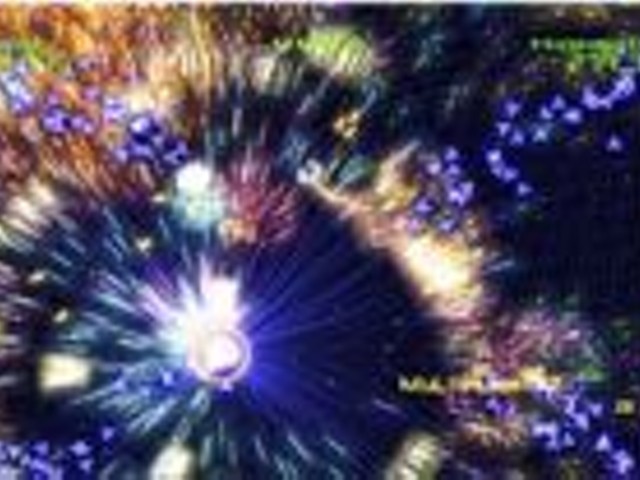The drama begins many centuries ago, when the forces of ultimate light and ultimate darkness, embodied in supernatural beings called "Others," squared off against each other atop a large bridge. With both armies evenly matched, heavy but equal casualties were sustained, until Geser (Vladimir Menshov), leader of the light forces, called for a truce, which was agreed to by dark leader Zavulon (Victor Verzhbitsky, who's like a cross between Rutger Hauer and Saw's Tobin Bell). Thereafter, the two sides policed each other, with the light side forming the Night Watch, to keep an eye on the dark Others, and the dark side forming the Day Watch, etc. Both sides agreed that all mortals and future Others could not be forced to take sides, but would have to choose darkness or light — although the dark forces retain a seductive edge because "it is easier for a man to destroy the light within himself than to defeat the darkness around him."
Naturally, there's a prophecy — isn't there always? — that will change everything once fulfilled. Derived from a Byzantine legend about a cursed virgin who started the whole light-versus-dark mess, it states that once the virgin is reincarnated and opens a vortex, it will signal the coming of a Chosen One who can permanently tip the balance of power, depending upon which side he chooses to take.
Oh, but there's more. The Others all have various powers — some are psychic, some shape-shifters, some vampires, and Geser and Zavulon are both apparently immortal (Zavulon can pull out his own spinal column and use it as a sword). All Others have the ability to enter a parallel dimension called The Gloom, which is infested with mosquitoes and rapidly saps one's sanity and/or blood, but allows people to walk through walls and be invisible, not unlike the One Ring that someone or other was trying to be Lord of in that other trilogy.
Cut to present-day Moscow. Our hero, if we can call him that, is Anton (Konstantin Khabensky), a psychic who first discovered his Otherness while trying to make a deal with a dark psychic to arrange a telekinetic love spell/abortion combo on his ex-girlfriend. Twelve years on from that incident, he's now a pathetic alcoholic who must also drink blood in order to put himself on the same wavelength as the dangerous vampires he's required to keep tabs on, one of whom is his next-door neighbor.
While on a mission to protect a human child from the telepathic come-ons of a hungry vampire couple, Anton discovers that the prophesied vortex is arriving, and it centers on Svetlana (Maria Poroshina), a terminally unlucky doctor who is probably the reincarnation of the cursed virgin. Thereafter, the plot focuses on two disparate strands: The finding and stopping of the virgin/vortex, and the fallout from one of Anton's early screw-ups, which has left a hungry and distraught female vampire on the loose, eager to eat a particular little boy whose significance will ultimately become clear at the last moment. That the little boy's mother (Maria Mironova) is, like Svetlana, a blonde in large glasses, confuses things a bit at first, but once you realize the two are in fact different characters, it isn't too hard to tell them apart.
If there's a weakness to all this, it's that there are just too many supernatural beings with too many supernatural powers to really get a handle on, and no explanation for why they have the powers. The mythology is probably spelled out more clearly in the original Russian novel by Sergei Lukyanenko, but no English translation is available as yet. Right now, it feels like any precarious plot twist can be defused simply by introducing a new character or new power that happens to suit the situation. Granted, this criticism could also be made of the X-Men movies; but at least with those, most U.S. viewers have a pre-existing knowledge of the characters and situations.
And remember, this is just part one of a trilogy. While all may not be clear yet, there's certainly enough here to make you curious about the other two parts.





